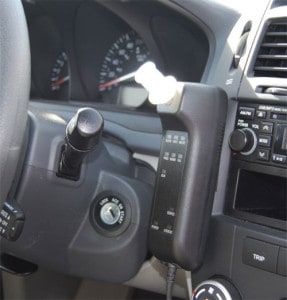 The New Hampshire Senate is considering a House bill (HB 496) that would allow first-time drunk driving offenders to install an ignition interlock in lieu of a full driver’s license suspension so that they can continue to drive to and from work, school, medical care, and treatment.
The New Hampshire Senate is considering a House bill (HB 496) that would allow first-time drunk driving offenders to install an ignition interlock in lieu of a full driver’s license suspension so that they can continue to drive to and from work, school, medical care, and treatment.
Under the bill’s provisions, first-time DUI offenders would receive a restricted license and install an ignition interlock in their vehicles after a license suspension period of 60 days or more. Under New Hampshire’s current DUI laws, first-time offenders are only required to install the device if their blood alcohol content (BAC) was 0.16 or higher at the time of arrest. The current license suspension period for first-time DUI offenders lasts for nine months to two years.
HB 496 is similar to the all-offender interlock bills enacted in 22 other states. However, instead of requiring interlock installation for first-time offenders, the bill allows offenders to petition the court for a limited license and ignition interlock installation if they wish to drive before the full license suspension period ends.
The offenders who participate in the proposed interlock program would use enhanced interlock devices that not only prevent someone’s vehicle from starting if a certain amount of alcohol is detected on the driver’s but that delivers real-time data to law enforcement. By providing law enforcement with real-time data, the enhanced device can alert police right away if an offender has someone else blow into the interlock, travels in an area not approved by the court, or performs any other action restricted under the program.
The bill has already passed the house and the Senate Judiciary Committee. The bill is currently awaiting review by the Senate Finance Committee before heading to the Senate floor for a final vote. The Senate must approve the bill by May 15 for the law to take effect on January 1, 2015. Based on a preliminary approval by the Senate, the bill has a good chance of passing.
Car Breathalyzer Help hopes to see the bill enacted, as installing an interlock will allow DUI offenders to maintain employment, continue their education, receive medical or substance abuse treatment, and drive family members in medical emergencies without harming other drivers on the road.
